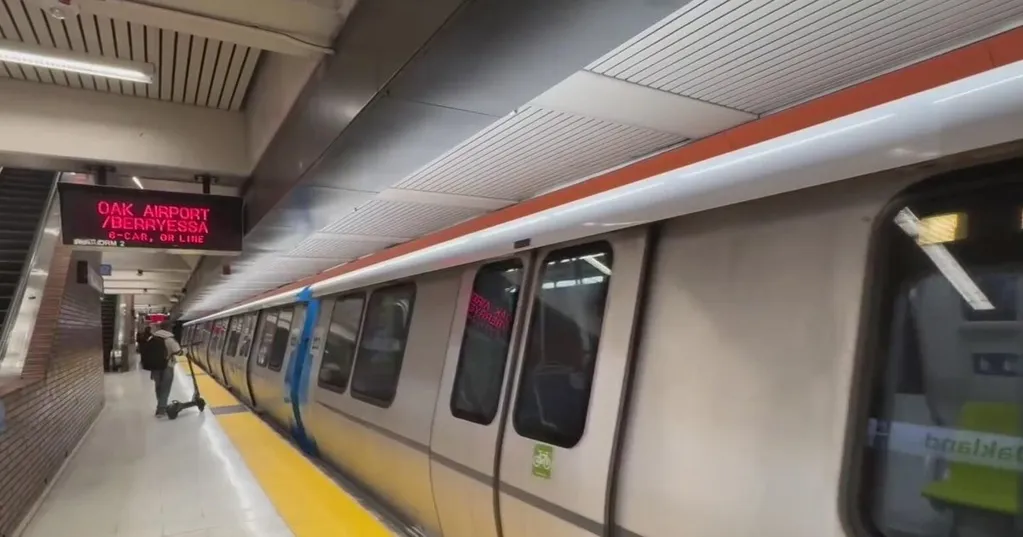Jose Fabian is a web producer for CBS Bay Area where he reports on local crime, politics and breaking news. He studied political science and journalism at Sacramento State and was born and raised in Northern California.
The California Legislature passed a bill that would give Bay Area voters in 2026 the power to pass a sales tax, which would fund regional transit, Sen. Scott Wiener announced Saturday.
Senate Bill 63, named the Connect Bay Area Act, allows for a regional funding measure to be placed on the November 2026 ballot. The sales tax would be .5% with the possibility for San Francisco to increase it to 1% to help fund Muni, according to Wiener and Sen. Jesse Arreguin's bill.
Alameda, Contra Costa, Santa Clara, San Mateo and San Francisco counties would be included in the measure. And it would help fund AC Transit, BART, Caltrain, Muni, San Francisco Bay Ferry, Alameda and Contra Costa small bus operators and Golden Gate Transit.
The bill still needs to go to Gov. Gavin Newsom, and he has until Oct. 12 to either sign or veto the bill. If voters pass the measure in 2026, it would be in place for 14 years.
"Keeping our trains and buses running frequently and reliably is essential for the future of the Bay Area," said Wiener. "The risks to our essential transit systems are real, and we have a long road ahead to securing this long-term funding and stabilizing our transit systems. I'm confident that in spite of these challenges, with partnership from leaders across the region we can ensure our public transportation systems remain vibrant and reliable."
According to Wiener, the bill requires transit agencies to improve their financial efficiency in order to get the funding.
The San Francisco Municipal Transportation Agency released a statement on lawmakers passing the bill.
"Transit is a public necessity, connecting people to jobs, students to schools, healthcare professionals to hospitals, and all of us to the places we love most in our neighborhoods. In San Francisco, the passage of SB 63 is a step towards protecting essential Muni service and will equip us with resources to continue investing in our infrastructure, safety, and accessibility, all of which are critical to meeting the growing needs of San Francisco.
The SFMTA faces a significant budget deficit of $307 million beginning in 2026, despite recovering ridership. We are tackling this fiscal crisis from every angle and taking action, bringing our deficit down from over $440 million. Our work to find savings internally and becoming more financially efficient has resulted in $130 million in savings. We know more is needed to keep Muni service and programs, and move boldly towards a faster, cleaner, and more connected transit system that our customers count on."
BART also released a statement on SB63's passing.
"Senate Bill (SB) 63 is a historic opportunity to allow voters in five counties of the Bay Area to consider a 14-year sales tax measure in November 2026 to preserve and improve transit. BART, and the entire transit network that keeps the Bay Area moving, stand to benefit from this bill.
The legislation is needed because remote work has caused a decline in operating revenue for various operators and deficits are too large to solve through cuts alone. Since the COVID-19 pandemic, it has been clear that BART's outdated funding model no longer works. BART is facing annual operating deficits of $350-400 million once the emergency assistance we have been provided runs out at the end of Fiscal Year 2026."
As for funding in the meantime, Newsom has said he would work with the Bay Area to help secure funding for transit.
